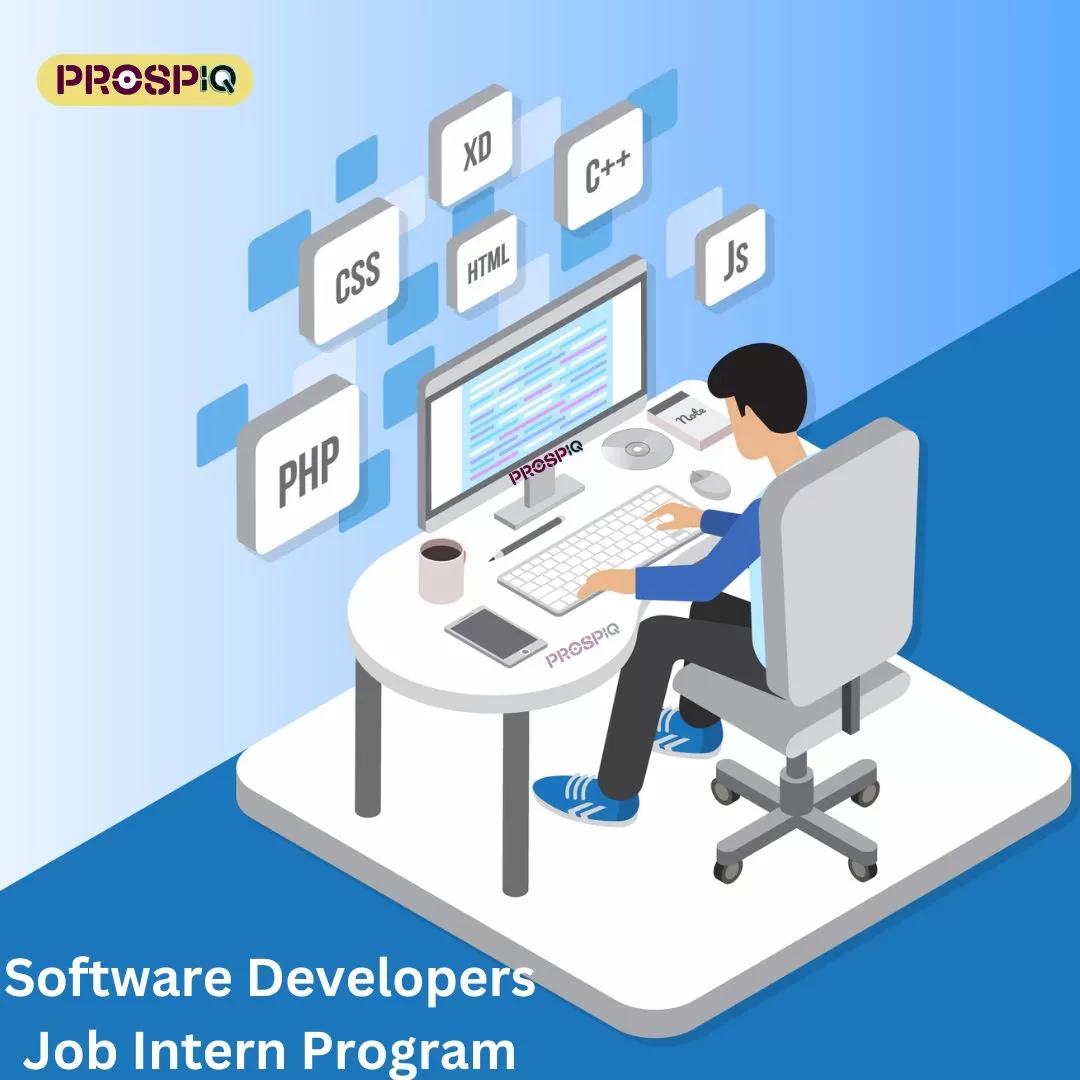
Software Developers Job Intern Program
Prospiq Limited Provide Software
Developers Job Intern Program.A Software Developer Internship Program is
designed to provide students or early-career professionals with hands-on
experience in software development, offering the opportunity to learn new
technologies, tools, and industry practices while working in a real-world
environment. Here's an outline of what a typical software developer intern
program might look like:
1.
Program Overview
- Duration:
Typically lasts between 8 to 12 weeks. - Location:
On-site, remote, or hybrid. - Eligibility:
Students (undergraduates or graduates), coding bootcamp attendees, or
those looking to make a career switch. - Objective:
To provide practical software development experience and mentoring in a
real-world setting.
2.
Key Learning Areas
- Programming Languages: Interns will likely work with languages such as
Python, Java, JavaScript, C#, etc. - Software Development Lifecycle (SDLC): Exposure to Agile, Scrum, or Kanban methodologies.
- Version Control Systems: Use of Git or GitHub for collaborative coding.
- Software Design Patterns: Understanding of common patterns like MVC
(Model-View-Controller), Singleton, and Factory. - Debugging and Testing: Learning how to write unit tests, use debuggers, and
apply testing frameworks.
3.
Internship Structure
- Onboarding:
Introduction to the company, tools, and project. - Project Work:
Interns are often assigned a project, such as building a small feature or
improving an existing system. - Team Collaboration: Work closely with a team of experienced developers,
product managers, and designers. - Code Reviews:
Interns submit code for review, learning about clean code and best
practices. - Mentorship:
Each intern is assigned a mentor who provides guidance, feedback, and
support throughout the program.
4.
Tools and Technologies
- Development Environments: Familiarity with IDEs like VS Code, IntelliJ, or
Eclipse. - Frameworks and Libraries: Depending on the company, interns may work with
frameworks like React, Angular, Django, Spring, etc. - Cloud Services:
Exposure to AWS, Google Cloud, or Azure for hosting applications. - Database Systems:
Experience with SQL (MySQL, PostgreSQL) and NoSQL databases (MongoDB,
Redis).
5.
Soft Skills Development
- Communication:
Clear and effective communication during stand-ups, meetings, and
presentations. - Time Management:
Learning to manage tasks within deadlines and handle multiple
responsibilities. - Teamwork:
Collaboration in a cross-functional team environment.
6.
Expected Outcomes
- Portfolio Development: Interns will leave the program with project work that
they can showcase to future employers. - Technical Skill Growth: Improved coding proficiency and deeper understanding
of development practices. - Professional Networking: Interns often build relationships that lead to future
job offers or career growth. - Potential Job Offers:
High-performing interns may receive full-time job offers after their
internship.
7.
Application Process
- Resume and Cover Letter: Tailor to highlight technical skills and projects.
- Technical Interviews:
These usually include coding challenges, algorithm tests, and possibly a
system design interview. - Behavioral Interviews: Focus on problem-solving, teamwork, and adaptability.